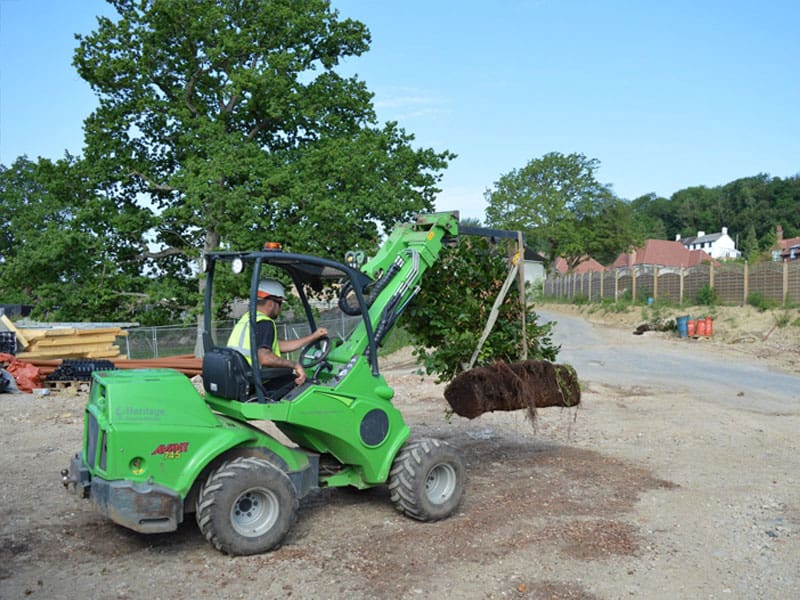
Understanding the root structure for plants in your garden can help you decide what plants to position where. Our guide is here to help.
Bare root
Bare-root plants, are carefully dug from the ground during the plants dormant season which is between November and March. They are sold with their roots exposed and no soil attached. They are the cheapest way to buy field grown plants therefore popular for low budget planting projects.
Rootball
A rootballed plant is dug up from the ground in a ball of soil and wrapped in hessian and wire-net to hold it all together which makes it safe to transport.
Container
When plants are grown out of the ground in pots, troughs or bags they are known in the trade as container grown plants. These plants are produced mostly for selling during the summer months when other seasonal plants are unavailable.
Even large specimen plants are grown in containers for summer planting projects.
Root strip
Root strips are formed when rows of plants are densely planted in a straight, narrow trench. This cultivation method is specifically designed to produce what are known as instant hedges.
Once the plants have reached maturity and are ready for sale, they are carefully extracted from the ground in elongated sections referred to as root strips. This unique growth pattern occurs as the roots of each individual plant intertwine and extend along the trench, resulting in a cohesive strip of roots. Root strips can be harvested in various lengths, ranging from 50 cm to 250 cm, allowing for flexibility in landscaping applications.